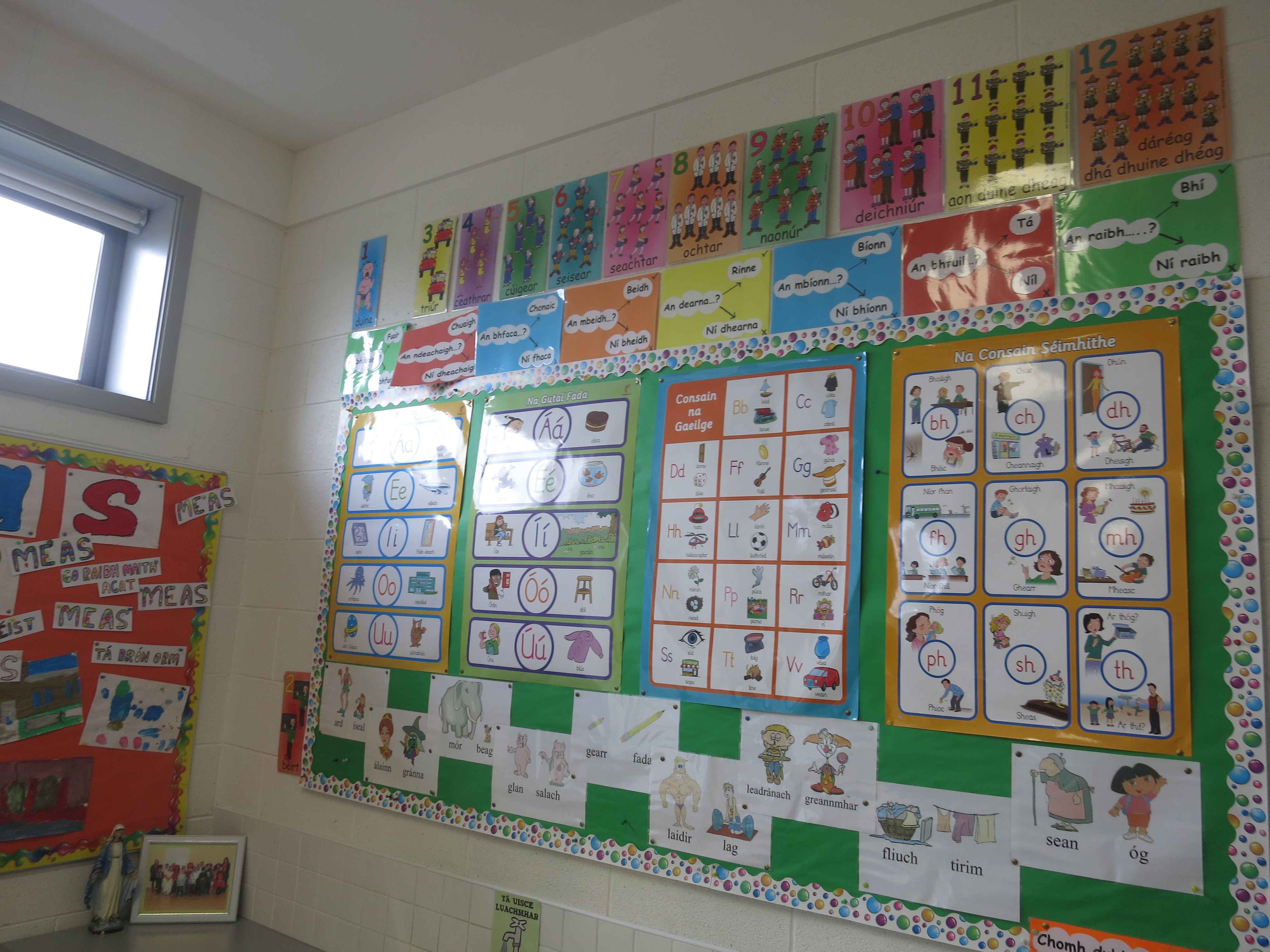Irish spelling is mad. There are huge amounts of letters that are silent, or bear no relation to what you say. And then there are letters that are not there that you insert when you speak.
Now, before you say it, yes, English is terrible, indeed much worse than Irish, but I learnt it so long ago that I can't remember how on earth I worked out how to spell using the world's worst writing system.
And Irish does at least have fairly consistent writing rules, so you can pronounce things properly if you know them, it's just that you have to learn a whole lot of complicated rules to do it, when it would be just as easier to write it more simply.
Complicating all this is that, in common with other Celtic languages, there are certain changes that happen to the start of words depending on what sounds come before, so that you get changes like this:
| (I) will be ... | Beidh (mé) ... | /bei mei / | ('bay may') |
| ('on may too') |
Personally I think they should just keep the primary spelling (in this case beidh) and just teach learners the rules of when the sound changes, which would be far easier than learning the obscure writing rules. Native speakers do it naturally, so it would save them learning irrelevant writing rules too! For instance, kids have taken the English word 'bike' (instead of using the Irish rothar), but when they say my (mo) bike the mo affects the bike so it's pronounced mo vike. I can't see any reason to change the spelling, because native speakers will naturally change the pronunciation, but if you were to write this it would have to be something like mo bhike, where bh = v, a spelling convention that is used (as in the examples above) so that you can see what the primary word would look like.
But enough of the kindergarten stuff! Try and work out (without reading the answers below) how you would say the following:
| gnóithe | busy |
| tabhairt | giving |
| i ndiaith | after |
| b'fhéidir | maybe |
| airgead | money |
| mhaith | good |
| gheobhaidh | I will give |
| bhfaighidh | I will get |
| ollmhargadh | supermarket |
And here they are!
| gnóithe | /greɪhɘ/ | ('grey-ha') | tabhairt | /tortʃ/ | ('torch') | i ndiaith | /injeɪ/ | ('in-yay') | b'fhéidir | /baɪdʒr/ | ('buy-jar') | airgead | /aɪərɪgd/ | ('arr-ig-ed') | mhaith | /waɪ/ | ('why') | gheobhaidh | /jowiː/ | ('yo-ey') | bhfaighidh | /vaɪ/ | ('vhy' - rhyming with 'why') | ollmhargadh | /ɒlwɒrəgə/ | (ol-waraga) |
You can search for their pronunciation at http://www.forvo.com – bearing in mind that there is a great deal of regional variation in pronunciation, so it won't always sound the same as the guide above!
